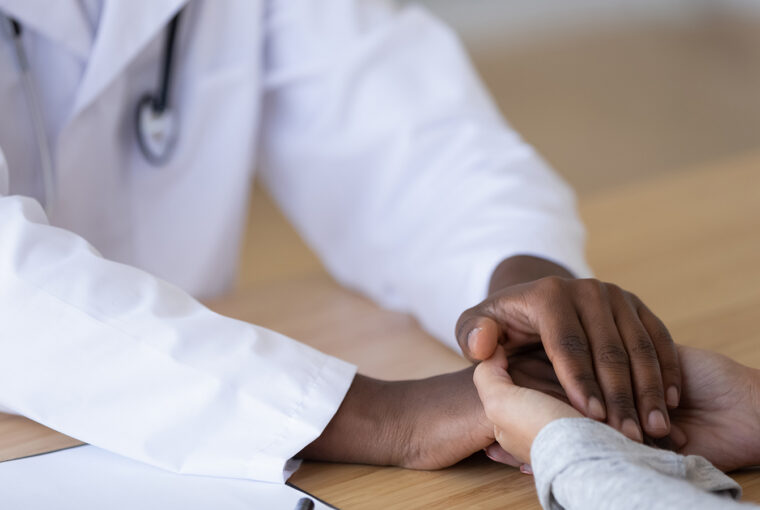There’s no way around it, the sudden loss of a baby is a tragedy. It doesn’t matter what point in the pregnancy it happens, it is still the loss of a personality, a future, a life. Miscarriages often leave women with a confusing litany of grief and anger. But, it’s important to remember to heal. Take the big step… and allow yourself to heal. We’re dispelling some of the biggest myths about miscarriages to help women take that step.
MYTH: Miscarriages are rare.
You may feel very alone after a miscarriage, but you are not. There are many women who have gone through this trauma and can offer support. A nationwide survey shows that the many people believe miscarriages are very rare, occurring in only 5% of cases. Fact is, miscarriages are exceptionally common and it is estimated that up to 20% of all pregnancies may end in a miscarriage. Most miscarriages happen in the first trimester of pregnancy. You may feel disconnected from others after a miscarriage, but remember, you are not alone. Many others have had miscarriages and may be a source of support and comfort.
MYTH: Having one miscarriage means you will likely have another.
Just because you lost one pregnancy doesn’t necessarily mean you’re destined to lose the next one. It can seem hopeless after losing a pregnancy, but there is still hope! Most people will go on to have full term healthy pregnancies, though your risk does increase after two miscarriages. Recurrent pregnancy loss does warrant an obstetrical/medical evaluation and work up and only occurs in about 1% of women. If you are concerned about the pregnancy loss and want more information about risk of recurrence it is always best to consult a fertility specialist or your local obstetrician/gynecologist for information.
MYTH: Spotting or mild vaginal bleeding during pregnancy means I will have a miscarriage.
Vaginal spotting or mild vaginal bleeding does occur very frequently in the first trimester of many pregnancies and for most people this is not a serious concern. Some healthcare professionals estimate that this symptom may occur in somewhere between 20-40% of all pregnancies. Vaginal spotting or bleeding during a pregnancy should never be ignored and should be assessed by your healthcare professional.
MYTH: Having a miscarriage is not an emotional event.
Miscarriage grief is real. Many experience a wide variety of emotions from sadness, shame, and guilt to isolation and loneliness. Unfortunately, talking about a miscarriage is still a taboo subject and many people rarely share their experiences, whether they themselves were pregnant or a spouse.
Knowledge is power. Many people want to gather as much information as possible about their miscarriage. If you are having trouble coping with your miscarriage, consider joining a support group or speaking with your healthcare professional. You may be suffering from depression. Your partner (who may also feel isolated and alone) could also be a source of support. Consider including them in your discussions.
It is important to stay connected to family, friends, and your partner. Do not remain isolated. People you know may have had miscarriages and understand your experience and grief. They can provide support during this difficult time.
MYTH: Miscarriages are preventable.
Some miscarriages are unexplained. Others are caused by chromosomal abnormalities or other serious health concerns with the development of the embryo. A national survey showed that almost 40% of women who have had miscarriage thought they were personally responsible for causing it. Women often participate in self-blame. Some feel that lifestyle choices like heavy lifting, enjoying sex, or taking birth control pills may have contributed to the miscarriage. Others feel that stress or other physical activities may have contributed to the miscarriage. This is far from the truth.
MYTH: You should wait 6 months before trying to conceive after a miscarriage.
Recent literature suggests that you can have a healthy full-term pregnancy after waiting as little as one month after a miscarriage. Many health care professionals suggest waiting until your hCG (pregnancy hormone) has returned to normal.
You may need to wait longer if you have had a dilation and curettage (D&C) as part of the treatment for the miscarriage. Remember, every body is different! Both physical and emotional health are important before trying to conceive. Talk it over with your medical care providers and partner. Decide if and when it is the correct time to try again for another pregnancy. Do not feel rushed or pressured. Follow your own personal timeline when deciding if you want to get pregnant again. If you are looking for help, there are many resources you can find. One place you can look is here.
Date Ideas from Sam & Maya at LEQ!
Loving Leo
Michael Krychman
MDCMHis special interests include menopausal health, hormone therapy, sexual pain disorders, and loss of libido, chronic medical illness and medical devices and their impact on female sexual function. He is a well-known speaker who is featured locally, nationally and internationally. He has published many articles in peer-reviewed journals and has been featured in many scientific journals and lay magazines. Dr Krychman is an active reviewer for the Journal of Sexual Medicine. He was the Scientific Chairman for the 2010 International Society for the Study of Women’s Sexual Health annual educational meeting. He is an active member in good standing in North American Menopause (NAMS), International Society sexual Medicine (ISSM), European Society Sexual Medicine (ESSM), International Society Study of Women’s Sexual Health (ISSWSH), American Society of Sex Educators, Counselors and Therapists (AASECT) and American College of Obstetricians and Gynecologists (ACOG). He was a member of the Standard Committee for ISSM and has been a guest professor at the ESSM Sexual Medicine Summer School in Oxford, England. He was the creator of the recent WISH Initiative (Women’ Initiative on Sexual Health: www.yourvoiceyourwish.com) and the 2013 recipient of the WISH Outstanding Achievement award given by the ISSWSH. He is also on the professional advisory board for the Patty Brisben Foundation.
Dr. Krychman’s has published 7 books including his most recent one: The Sexual Spark, 20 Essential Exercises to Reignite the Passion, 100 Questions & Answers for Women Living with Cancer: A Practical Guide to Female Cancer Survivorship has been recently published, 100 Questions and Answers about Women’s Sexual Wellness and Vitality and Breast cancer Sexuality, Sensuality and Intimacy. He has been featured on the Today show and in the New York Times and US News and World Report World Report, The Wall Street Journal, New York Times, Health Magazine and many others. He was named one of Orange County Top Doctors for 2015 and 2016 in Menopause, Sexual Dysfunction and Vulvar Pain. In 2019 and again in 2020, he has been named an Orange County Physician of Excellence by Orange Coast Magazine in Survivorship, Sexual Medicine and Menopause.









